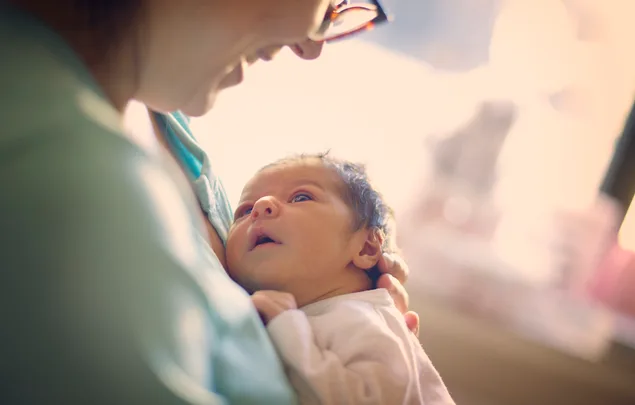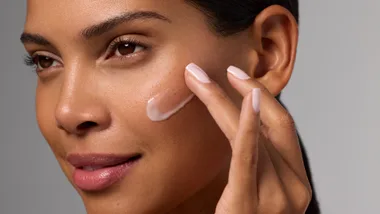Nothing takes you skating towards the edges of your sanity quite like a baby who won’t stop crying, and my baby was a colicky baby, a purple crier, a smiley angel who inexplicably turned into an arsenic hour arch-devil around 4pm every day.
Those hours, during her two to four month period, were some of the most trying of my life, and the ones that forged me as a mother. During those hours, I couldn’t know what she wanted and felt helpless to help her. But ultimately those hours made me understand that motherhood is about resilience, serious strength, and just being with your child, even when you don’t think you’re doing much good.
“It’s all right. It’s all right,” I used to tell her, mantra-like, but it was really myself I was reassuring.
I wouldn’t have had those hours if I hadn’t been able to double-dip on my maternity leave, to use the term that we have somehow allowed slip into our lexicon when discussing the subject of paying women for their child-caring work.
I would have had to go back to work much sooner than the ten months I had with my baby.
Even as it was, and notwithstanding the arsenic hour agonies, I wish I could have stretched it to a year. The purple crying stopped at about four or five months, although I was still way too addled to think about returning to work.
“I was still way too addled to think about returning to work”
Jacqueline Maley, Journalist
As a feminist it hurts to say it, but baby brain is real (although more a consequence of chronic sleep deprivation, I suspect, than any innate weakness of the feminine brain). I had the short term memory of a lifetime stoner and my body and emotions were still victim to my hormones in a way that would have been similar to adolescence if it wasn’t so completely different.
Since Social Services Minister Christian Porter announced that the Coalition’s “double-dipping” reforms are back on the government’s agenda, I have thought a lot about how ludicrous it would have been for me to return to work when my baby was 6 weeks, or ten weeks, or even 12 weeks.
I don’t think I would have been physically able to be away from her, and I also don’t think I would have been a very productive employee.
There is a scene in the marvellous comedy Catastrophe where the female protagonist decides to go return to work, when her daughter is about four months old.
“I love her so much. I need to get away from her,” she tells her husband.
She attends a meeting with her boss to discuss a return date, and ends up a sobbing heap, crying about how she’s not ready to leave her baby yet, breast milk leaking through her shirt.
I laughed very hard at this scene because I could relate to it.
In all of the debate about so-called double dipping, which everyone baldly acknowledges will force women back to work sooner, and give them less time with their babies, not once have I heard anyone be honest about the sheer physical difficulty of it.
“Not once have I heard anyone be honest about the sheer physical difficulty of it”
Jacqueline Maley, Journalist
The long lag of the body recovering from childbirth. The toll of constant sleep deprivation. The baby’s overwhelming need to be with their mother during hours of distress, to feed from her and attach to her. The murky detail of leaking breasts and collapsed bladders. The instinctual separation anxiety, of both mother and child.
The murky physical detail doesn’t fit well into policy documents, and it is impossible for the men running the debate to talk about, because they have never experienced it. And that, if you think about it for even a minute (even if you have baby brain), probably explains why we are having the debate at all.
Jacqueline Maley is a journalist with Fairfax Media
RELATED: This is why we need paid parental leave
 Getty
Getty









